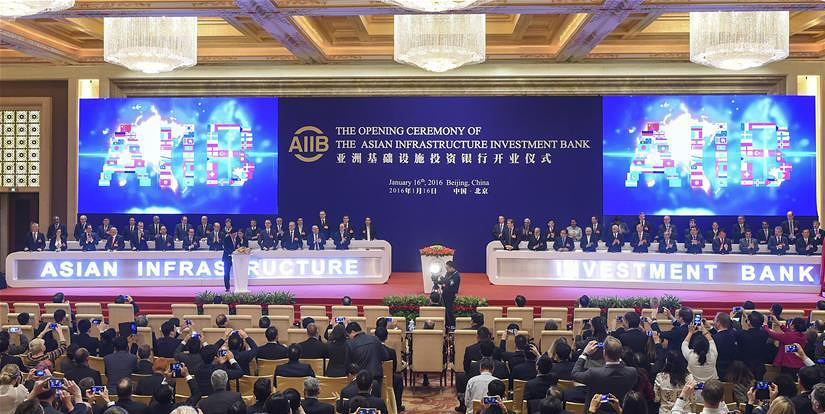AIIB to meet regional financing needs, boost global economy

The opening ceremony of the Asian Infrastructure Investment Bank (AIIB) was held in Beijing on Jan. 16.
The opening ceremony of the Asian Infrastructure Investment Bank (AIIB) was held in Beijing on Jan. 16. Chinese scholars shared their opinions on the role of the bank in boosting the global economy and many other fields.
Capital for infrastructure
Many scholars noted that there is a lack of capital for investment in Asian infrastructure. “One important function of the AIIB is to offer financial support for infrastructure building in the region,” said Liu Yuanchun from the School of Economics at Renmin University of China.
“Currently, infrastructure is relatively weak in Asian development. The AIIB can improve the international financial governance system and enhance infrastructure construction in developing countries,” he added.
The AIIB can function as a platform for communication and exchange, said Lin Guijun, vice-president of the University of International Business and Economics. “By supporting the construction of infrastructure in Asia, the AIIB can promote economic growth in the region and improve social welfare in Asia and in turn quality of life for Asian people.”
Liu Dongmin, a research fellow and director of the International Finance Research Division of the Institute of World Economics and Politics at the Chinese Academy of Social Sciences, said one reason for Asia’s sluggish growth is inadequate investment in infrastructure. While the AIIB is helping to relieve this situation, it is also a sign that China is playing a more active role in international financial system reform and proposing more constructive measures, he said.
Regional economic integration
Scholars further elaborated that the AIIB is dedicated to supporting regional economic integration by contributing to infrastructure and communication within the region.
Liu said one prerequisite for narrowing gaps in global wealth and technology is to provide more public goods and basic products. In Asia, it is imperative to offer multiple financing channels for infrastructure construction to make up for insufficient capital in this area, he said.
“China has the responsibility as well as the ability to contribute to development in Asia, and the AIIB will become a new platform for building a community of common destiny for all mankind,” Liu said. As the biggest economy in Asia, China has the capability as well as the responsibility to advance growth in this region, he said.
“The bank embodies the beliefs of sharing and mutual benefit that are firmly held by China,” said Lin. The bank is an open financial institution with no fixed membership. Therefore, surrounding countries can benefit from China’s development.
Multilateral financial institution
While underwriting the growth of Asian countries, the bank itself can gain justifiable profits, Liu said. In this process, other economies will increase the demand for products and services from China, which is conducive to China’s growth.
Because the bank is a multilateral financial institution designed to facilitate infrastructure building, risk management is a common concern among scholars. Lin proposed that the first step is to control risk in investment because infrastructure projects are long-term endeavors that require large amounts of money. At the same time, measures should be taken to attract more enterprises and private capital.
“In addition to risk management, internal management and coordination should also be strengthened,” Liu said, adding that the China-led AIIB is still in its nascent stage and faces a steep learning curve. He said the bank should prioritize the implementation of projects while reflecting on internal governance and coordination.
The bank’s 57 member countries have distinctive cultural, political and economic traits, so effective intercultural communication is one of Liu’s concerns. When designing projects for developing countries, the bank must adapt its high international standards to suit their needs, he said.
Zhang Fan is a reporter at the Chinese Social Sciences Today.

 PRINT
PRINT CLOSE
CLOSE